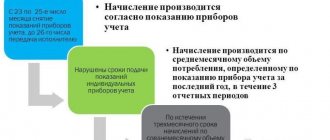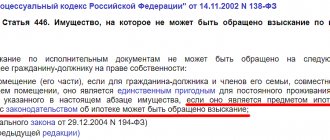Penalty for late payment under an equity participation agreement (DPA): everything you need to know about it
Under an agreement for participation in shared construction, the developer is obliged to transfer the construction project to the shareholder within the period specified in the agreement. At the same time, the transfer period is an essential condition of the agreement for participation in shared construction; the absence of a period in the agreement entails the recognition of such an agreement as not concluded. In other words, Rosreestr will refuse to register an agreement for participation in shared construction that does not have a transfer deadline.
Thus, the deadline in shared construction is a very important parameter, therefore the legislator also establishes the responsibility of the developer for its violation. It is important to take into account that the norm of Law No. 214, which establishes the amount of penalties for delay under a shared construction agreement, is mandatory, therefore the developer cannot change the amount of liability in the agreement.
What is the amount of the penalty for delay under a shared construction agreement?
The penalty for shared construction differs for individuals and legal entities.
- For individuals, the penalty for the DDU is 1/150 of the refinancing rate in effect on the day the obligation is fulfilled, of the price of the DDU for each day of delay.
For legal entities, the penalty for the DDU is 1/300 of the refinancing rate in effect on the day the obligation is fulfilled, of the price of the DDU for each day of delay.
Formula for calculating penalties for late delivery of an apartment or other object:
Penalty for late payment under DDU = Amount of penalty x Price of DDU x Number of days of delay
Calculate the penalty for late delivery of an apartment under the DDU online using the calculator at the link.
Important aspects when collecting penalties under DDU
Shareholders often ask the question: “How to calculate the penalty for late delivery of a house?”
In answering this question, we have identified 4 important aspects that a shareholder should pay attention to.
1. When calculating the penalty, the price of the object under the DDU is taken into account, and not the price under the assignment agreement
If the shareholder purchased the property not from the developer under the DDU, but from third parties under an agreement on the assignment of the right of claim (including cases of purchase from persons affiliated with the developer), then in order to calculate the penalty, the shareholder must have a copy of the original DDU (between the developer and the seller).
Accordingly, when calculating the amount of the penalty, the shareholder uses the value of the property specified in the initial agreement for participation in shared construction.
DDU price ≠ cost of assigned rights
The developer is liable to the extent of the cost of the property specified in the original DDU, which the developer signed. This also applies to cases of calculating penalties for late payments under the DDU and cases of termination of the DDU (otherwise the shareholder could assign the property to another person at an inflated cost and the new shareholder would demand from the developer an amount of money that the developer did not receive). It is important for equity holders to take this aspect into account when purchasing real estate (if the developer sells the DDU properties not directly, but through intermediaries under an assignment agreement, the price in the original agreement and the assignment agreement is significantly different, then this indicates serious risks in purchasing real estate, since a) in the event of termination The shareholder will only demand the price for the DDU, and not the entire amount paid; b) the money for the real estate is received not by the developer, but by the intermediary, and upon termination of the contract, the shareholder will collect money from the developer, who may be insolvent). Read more about the risks of buying an apartment under an assignment agreement here.
2. It is important to correctly calculate the period of delay in construction under the DDU allowed by the developer
To correctly calculate the penalty, the shareholder must correctly calculate the delay committed by the developer.
Here it is worth paying attention to the following:
a) when calculating the penalty for the DDU, the period of transfer of the DDU object is taken into account, and not the delivery date of the house.
In the DDU, the developer indicates 2 deadlines - the deadline for putting the house into operation and the deadline for transferring the property to the shareholder under the deed after putting the house into operation. The second term usually differs by several months. And it is this that is taken into account when calculating the period of delay under the DDU. The delay in shared-equity construction begins to run from the day following the expiration date of the transfer of the object under the DDU.
b) the date of signing the acceptance certificate is included in the period of delay.
Example:
- The deadline for transferring the apartment under the DDU is no later than 01/29/2018. The apartment was transferred on April 27, 2018.
- How to correctly calculate the delay for a developer?
- The developer's delay was 88 days from 01/30/2018 to 04/27/2018 inclusive.
3. The refinancing rate from 01/01/2016 is equal to the key rate. Moreover, since 01/01/2016 it has changed quite often. Therefore, it is important for the investor to determine what refinancing rate to use.
In fact, in practice, there are 3 different positions of lawyers, including judges, regarding the answer to the question: What refinancing rate should be taken into account when calculating the penalty for the DDU, if the rate changed during the period of delay?
Option for calculating penalties according to DDU No. 1
The refinancing rate is determined on the day the transfer and acceptance certificate is signed (the date the claim is filed in court).
Option for calculating the penalty under DDU No. 2
The refinancing rate is determined on the day of the end of the transfer period specified in the DDU (that is, when the developer was supposed to transfer the object).
Option for calculating penalties according to DDU No. 3
The refinancing rate must be determined for each period of its validity included in the period of delay.
Each option for calculating the penalty under the DDU has its own legal justification, which can be used by the shareholder. Therefore, the shareholder can choose a calculation method that allows him to recover a larger penalty from the developer, and provide appropriate justification.
You can read the legal basis for each calculation method, as well as calculate the penalty for late delivery of an apartment (remember that the penalty for late delivery of a house is not paid) using any of these options on a convenient online penalty calculator for DDU here.
4.
It is important for the shareholder to take into account that the court has the right to reduce the amount of the penalty and fine on the basis of Art.
333 of the Civil Code of the Russian Federation About the reduction of penalties by the court, as well as how to avoid it, read the article “Application of Art. 333 of the Civil Code of the Russian Federation by the courts when collecting penalties under the DDU.”
5.
The shareholder must know that the developer is exempt from paying a penalty if he fulfilled his obligations on time, but the transfer of the apartment did not take place due to the fault of the shareholder himself (the shareholder avoided signing the transfer deed).
The law protects the shareholder from the arbitrariness of shareholders who deliberately delay the transfer time from the purpose of collecting a larger penalty. If the developer sent, within the period specified in the contract for the transfer of the object, a notice to the shareholder about the need to accept the apartment or other object, and the shareholder did not appear for acceptance or avoided signing the act, then the developer is released from liability for the delay in transfer, since the delay in transfer occurred due to the fault of the shareholder, in other words, if the developer submits to the court confirmation of sending a notice of transfer to the shareholder within the prescribed period, then the court may refuse to satisfy the requirements. How to avoid a court refusal when collecting a penalty? How to avoid becoming a “draft dodger” under Law No. 214-FZ? We wrote an article about this, read it at the link.
How to collect a penalty from a developer for delay under an equity participation agreement (DPA)?
It is important not only to correctly calculate the penalty for late delivery of an apartment, but also to collect it. Let's consider the procedure for collecting a penalty for late transfer of an apartment (other object) under the DDU.
1. Pre-trial dispute resolution procedure
Despite the fact that compliance with the claims procedure in cases of collecting a penalty from a developer is not mandatory, we still recommend that before filing a lawsuit in court, you contact the developer with a claim for payment of a penalty. Firstly, filing a claim will help to avoid the court’s unjustified refusal to collect a fine under the Law on the Protection of Consumer Rights for refusal to voluntarily fulfill the demands of the shareholder (such a refusal can be appealed in the second instance, there is good practice in this regard, but in order not to waste time on an appeal that lasts longer than the claim period, it is better to play it safe). We recommend that you send the claim by a valuable letter with a list of the attachments (in the list indicate: Pre-trial claim under the Agreement for participation in shared construction No. ___ dated ______). It should be noted that Law No. 214-FZ does not define the deadline for the developer to pay a penalty under a share participation agreement on a voluntary basis, but based on the provisions of the Law on the Protection of Consumer Rights, for shareholders-consumers it is generally considered to be 10 days from the date of sending the letter of payment penalty. But in practice, it is extremely rare for a developer to pay a penalty under an equity participation agreement on a voluntary basis.
2. Collection of penalties for delays under the DDU in court
If the developer fails to pay the penalty in pre-trial order, in order to collect the penalty, the shareholder must apply to the court with a statement of claim (as a rule, developers do not respond to the claim or respond with “unsubscribes”).
Before filing a claim in court, the shareholder will need:
a) determine the jurisdiction and jurisdiction of the case.
Individuals who purchased real estate for personal purposes must apply to a court of general jurisdiction. About the jurisdiction options for cases of collecting a penalty from a developer for delay in a court of general jurisdiction, read the article “Jurisdiction of cases of collecting a penalty under the DDU.”
Legal entities and individual entrepreneurs must apply to the arbitration court at the location of the developer to collect penalties, unless other jurisdiction is specified in the DDU.
There is a belief among shareholders that in the arbitration court the practice of collecting penalties under the DDU is better (the penalty is reduced less by the court), therefore individual shareholders cede their rights of claim to legal entities or individual entrepreneurs, who in turn turn to the arbitration court. However, this belief was true several years ago, before the practice of collecting penalties under the DDU in the arbitration court changed. About the current practice of collecting penalties under the DDU in an arbitration court, read the article “Collection of penalties under the DDU in an arbitration court, buying out the right to claim a penalty under the DDU.”
b) determine the price of the claim and the amount of the state duty, if it is payable.
A shareholder in a court of general jurisdiction may recover:
- penalty for delay in transfer of an object under an equity participation agreement (the amount is determined by the formula described above)
- compensation for moral damage (claimed in any amount, the final amount is determined by the court)
- legal expenses (paid expenses for legal services, expenses for paying the notary fee for certifying a power of attorney)
- a fine of 50% of the amount awarded by the court.
The price of the claim for calculating the state duty from the specified requirements includes only the amount of the penalty.
In judicial practice, there are also decisions to recover damages from the developer in the form of housing rental costs. The possibility of recovering such damages depends on the factual circumstances of the case and the practice of a particular court (judge). Read a separate article about the recovery of damages in case of delay under the DDU. If you claim damages from the developer, the amount of damages is also included in the cost of the claim.
Legal entities and individual entrepreneurs in the arbitration court cannot file claims for compensation for moral damage, in addition, the issue of collecting a fine is controversial (more on this at the link given above).
To learn how to determine the state duty when collecting a penalty under the DDU, read the article “State duty in cases of collecting a penalty under the DDU.”
After filing a claim in court, the plaintiff must take part in court hearings (usually 2-3 of them) during the consideration of the case in order to defend his rights, especially if the defendant raises objections to the claim.
3. Execution of a court decision
Having received a positive court decision to collect a penalty, the shareholder is faced with the question: “How to actually receive a penalty for late payment under Law No. 214-FZ?”
To begin with, let us stipulate that the court decision to collect a penalty under the DDU comes into force after a month from the date of production of the court decision in final form (full decision with a reasoning part), if none of the parties appealed the decision. If the decision is appealed, then the court decision comes into force on the day the decision is made by the appellate instance, but the shareholder must wait until the case is returned to the court of first instance to receive a writ of execution.
After the court decision comes into force, the shareholder must forcibly obtain a writ of execution from the court in order to collect the penalty. Next, the shareholder submits the writ of execution for collection in the prescribed manner (in addition to the writ of execution, it is necessary to prepare an application for recovery in accordance with the Federal Law on Enforcement Proceedings) to the bank in which the developer’s current account is opened (you can find out the accounts by sending a request to the tax authority), or to Bailiffs Department.
The process of actually receiving a penalty under an equity participation agreement from the developer is lengthy, often creative, and sometimes resembles operational search activities to search for accounts and property of the developer; in rare cases, the money is received by the shareholder immediately after submitting the writ of execution to the bank specified in the developer’s details in the DDU . If the developer does not have enough money, but has any property (real estate, transport, accounts receivable, etc.), the shareholder will have to interact with the bailiff department, which, unfortunately, in practice, works inefficiently and inefficiently, and appeal the bailiff’s inaction to a higher authority authority and court.
4. The issue of taxation of penalties for DDU
A couple of years ago, a penalty under a share participation agreement was considered compensation for the shareholder’s losses and therefore was not subject to personal income tax. Then the Supreme Court of the Russian Federation and the Ministry of Finance changed their position on this matter. Now the shareholder, who received from the developer a penalty under the DDU and a fine under the Consumer Rights Protection Law, must pay tax on income. Compensation for moral damage and legal expenses are not taxed.
The shareholder, an individual, pays personal income tax on the penalty. The tax rate depends on whether he is a tax resident of the Russian Federation or not (13% for residents, 30% for non-residents).
According to subparagraph 4 of paragraph 1 of Article 228 of the Tax Code of the Russian Federation, the calculation and payment of tax based on the amounts of income received is carried out independently by individuals who receive income on the receipt of which tax was not withheld by tax agents, with the exception of income, information about which is presented by tax agents in the manner established paragraph 5 of article 226 and paragraph 14 of article 226.1 of the Tax Code of the Russian Federation.
In accordance with paragraph 6 of Article 228 of the Tax Code of the Russian Federation, taxpayers who received income, information about which was submitted by tax agents to the tax authorities
,
pay the tax no later than December 1 of the year
following the expired tax period, on the basis of a
tax notice sent by the tax authority
regarding the payment of the tax, unless otherwise provided by paragraph 7 of Article 228 of the Tax Code of the Russian Federation.
Thus, the above provisions of Articles 226, 226.1 and 228 of the Code provide for a special procedure for tax agents and taxpayers to fulfill their duties in the event that it is impossible for a tax agent to withhold the calculated amount of personal income tax, which excludes the obligation of taxpayers to independently calculate tax amounts and submit a tax return according to the specified income.
At the same time, according to paragraph 2 of Article 229 of the Code, persons who are NOT ASSIGNED with the obligation to submit a tax return have the RIGHT to submit such a declaration at their place of residence.
Accordingly, if tax was not withheld from the income received, then personal income tax is paid by the taxpayer on the basis of a notification from the tax authority no later than December 1 of the year following the expired tax period. If the taxpayer does not receive a tax notice and independently declares income in accordance with clause 2 of Art. 229 of the Tax Code of the Russian Federation, the tax payment deadline provided for in paragraphs 6, 7 of Art. 228 of the Tax Code of the Russian Federation (December 1 of the corresponding year), not adjusted.
This position corresponds to Letter of the Ministry of Finance of Russia dated December 10, 2018 No. 03-04-05/89331. At the same time, if the shareholder plans to use tax deductions to reduce the amount of tax (social, property, etc.), then he must independently declare this income and indicate tax deductions in this declaration.
- In general, the procedure for collecting a penalty under the DDU from a developer takes on average 4 months if the developer has funds in his accounts (if the decision is not appealed by either party to the dispute). If a shareholder or developer appeals a court decision to collect penalties under the DDU, then an additional 2-3 months must be added to this period (on average, but sometimes more). Also, if the developer is experiencing financial difficulties, then the process of finding funds for collection can also take a long time. Thus, the period for paying the penalty under the DDU depends on various circumstances: the period for consideration of the court case, the time for the court to issue judicial acts, the writ of execution, the period for finding funds from the developer.
Don’t have time to deal with the collection of penalties under the DDU on your own?
Order comprehensive legal services for the collection of penalties under the DDU from the developer with payment based on the result. We work for a percentage of the amount received into the account, without prepayment. Call us by phone or leave a request on the website, we will contact you as soon as possible and answer all your questions! Legal consultation is free!
Penalty for an apartment: how much will the developer pay?
If the developer delivers the property late, then by law he must pay a penalty. At the same time, the construction company has the right to achieve a reduction in the amount of such payments (Article 333 of the Civil Code). According to the leading lawyer of Land Law Firm Land Law Firm Federal rating. group Land law/Commercial real estate/Construction group Dispute resolution in courts of general jurisdiction group Private capital group Arbitration proceedings (major disputes - high market) Company profile of Pavel Lobachev, the penalty performs not only a compensatory function, but also a preventive one. If the courts reduce it tenfold, this will actually mean that the listed goals are ignored, the expert adds. However, in practice this continues to happen.
Compensation for parking spaces
Spouses Anton and Anna Pomorsky* purchased two parking spaces for a total cost of 7.7 million rubles under a share participation agreement. in the parking lot of the Royal House on Yauza residential complex under construction. The developer, Korund XXI LLC, committed to commission the facility in 2014, but construction dragged on for another three years. As a result, the couple received their property only in 2021. The construction company refused to pay for such a delay voluntarily.
Then the Pomorskys went to court with a request to recover 4.8 million rubles from the seller. penalties for violation of the deadline for the transfer of shared construction objects. Two instances decided to reduce this amount by 24 times - to 200,000 rubles, considering the applicant’s initial demands disproportionate. The courts further emphasized that parking spaces are not intended for residential purposes and are not considered essential items.
The Supreme Court, to which the plaintiffs complained, did not agree with this approach. The SC explained that in a controversial situation, it does not matter whether the properties are essential items for the applicants. The judges of the Supreme Court emphasized that the lower authorities did not provide any other reasons for reducing the penalty. The case materials do not contain any evidence from the defendant on the basis of which the compensation could be reduced, the Supreme Court added (case No. 5-КГ19-149). A trio of judges, chaired by Alexander Klikushin, decided to cancel all acts of the lower courts and send the case back to the first instance for a new trial (not yet considered).
Reduced fine
And Sergey Masterov* entered into shared-equity construction of a one-room apartment in a new residential complex near the center of Sochi. The developer, Universal JSC, was three years overdue for delivery of the house. The buyer demanded to pay him a penalty in the amount of 623,833 rubles for such delay. The seller refused to do this voluntarily, so Masterov went to court. There he additionally asked to collect a consumer fine from the developer - 311,916 rubles, as well as 50,000 rubles. compensation for moral damage.
The first instance decided to reduce the penalty to 50,000 rubles, and the compensation to 5,000 rubles, the fine was 2,500 (half the amount awarded for moral damage). The appeal indicated that the amount of the fine was calculated incorrectly, but left the lower court's decision unchanged. Masterov appealed such findings to the Supreme Court. The Supreme Court noted that the Krasnodar Regional Court, pointing out the error of the first instance, did not provide any reasons to support its conclusion, nor references to the rules of law.
Meanwhile, the fine must be calculated from the entire amount awarded in favor of the consumer of the amount, and not just from compensation for moral damage, the judges of the Supreme Court explained. In such cases, it is indeed possible to reduce not only the amount of the penalty, but also the fine, noted the Judicial Collegium for Civil Cases of the Supreme Court (case No. 18-КГ19-127). But in this case, the courts must provide reasons that allow it to be reduced. Taking into account the above circumstances, the trio of judges headed by Klikushin also sent this case for a new trial in the first instance (not yet considered) in terms of reducing the fine collected.
Pravo.ru experts: “Such decisions of lower courts are dangerous”
When collecting a penalty, the plaintiff should justify its amount to the court, says Pavel Lobachev from Land Law Firm Land Law Firm Federal Rating. group Land law/Commercial real estate/Construction group Dispute resolution in courts of general jurisdiction group Private capital group Arbitration proceedings (major disputes - high market) Profile .
Such decisions of lower courts are dangerous for law and order. How effectively will the penalty perform its functions if the developer knows: if he significantly violates the terms of the transfer of real estate under the contract, his liability will be insignificant?
Pavel Lobachev, leading lawyer at Land Law Firm Land Law Firm Federal rating. group Land law/Commercial real estate/Construction group Dispute resolution in courts of general jurisdiction group Private capital group Arbitration proceedings (major disputes - high market) Company profile
The criteria under which the reduction of the penalty under Art. 333 of the Civil Code in disputes with developers is really justified, it has been developed in practice quite a long time ago, Lobachev states. This approach is applicable when, due to a delay of several months, the developer is required to pay compensation equal to the cost of the apartment itself (case No. 41-KG18-27). In practice, developers use different arguments to justify the need to reduce penalties, says partner Kachkin & Partners Kachkin & Partners Federal Rating. PPP group/Infrastructure projects group Land law/Commercial real estate/Construction Company profile Dmitry Nekrestyanov. The most advantageous of them, the expert adds: the delay is associated with the actions of government agencies or monopolists, the amount of the penalty exceeds the amount of obligations under the contract, the amount of the penalty significantly exceeds the average interest rates on loans in the corresponding region.
It should be recognized that, objectively speaking, none of these arguments has any decisive significance for the court, Nekrestyanov asserts: “But together they lead to a reduction in the penalty.” The situation with the fine is essentially the same, explains Mikhail Osipov from the Law Office “A2” Law Office “A2” Federal rating. group Arbitration proceedings (major disputes - high market) group Corporate law/Mergers and acquisitions (mid market) group Dispute resolution in courts of general jurisdiction: “The courts see it as a type of legal penalty.” But it should be borne in mind that a reduction in the fine, similar to a penalty, should be allowed only in exceptional cases, the expert adds.
Abuses by shareholders
There is also another side to the problem. Natalya Nikolskaya, Chairman of the ICA Moscow Bar Association "Arbat" Moscow Bar Association "Arbat" Federal rating. , says that there is a whole market of law firms and lawyers who encourage shareholders to file claims against the developer: “They work both for a fixed amount and for a percentage of the collected amount. Some of them even include the phrase “collection of penalties under DDU” in their name. According to her, this phenomenon refers to “consumer extremism.” “Extremist lawyers” create chats on Telegram, where, under the guise of free legal advice, they impose their services on shareholders, the lawyer says: “They mislead shareholders, promising to recover from 75 to 150% of the claims, which almost never happens.”
How developers can protect themselves from abuse
- Include in the contract a condition for a simplified change in the timing of the transfer of the object without the client’s consent. And apply these conditions in practice.
- Include a condition on a simplified procedure for transferring ownership of an apartment if the shareholder evades acceptance of the apartment.
- Include a clause regarding penalties for delays in accepting an apartment.
- Work with shareholders must begin at the stage of moving into apartments. You can voluntarily pay a penalty to shareholders in an amount acceptable to the developer.
Lawyers are constantly inventing new techniques, often unscrupulous, Nikolskaya notes: “What causes the most harm to developers is an artificial change in the territorial jurisdiction of a dispute. According to the Law “On the Protection of Consumer Rights”, the shareholder can apply to the court of general jurisdiction at the place of his registration, including temporary registration. Lawyers are studying the practice of collecting penalties and fines in Moscow courts and temporarily registering their clients-shareholders in those territories where judges collect large sums. This is a massive phenomenon. Lawyers and their shareholders roam all over Moscow. Judges turn a blind eye to the shareholder’s bad faith, citing the fact that the law “On the Protection of Consumer Rights” does not give them the right to refuse to accept the dispute for consideration.”
Yulia Makarenko from UP Legal Partnership "Kursiv" Legal Partnership "Kursiv" Regional rating. group Antimonopoly law (including disputes) group Tax consulting and disputes group Land law/Commercial real estate/Construction The company profile draws attention to another problem that is just beginning to emerge. She explains that now developers do not have access to shareholders’ money, but carry out construction with the help of project financing: “When issuing loans, banks require developers to take on additional obligations and limit their ability to manage both their own and targeted funds.” Buyers’ money is kept in escrow accounts and is protected from any attacks until the apartment is transferred. If previously a developer built an object at the expense of shareholders and the collection of both a penalty and a consumer fine from him could be justified by the fact that the developer used other people’s funds for free, now the construction company pays a percentage to the bank for this, Makarenko sums up.
* – names and surnames have been changed by the editors.
- Alexey Malakhovsky
- Supreme Court of the Russian Federation
- Civil process






